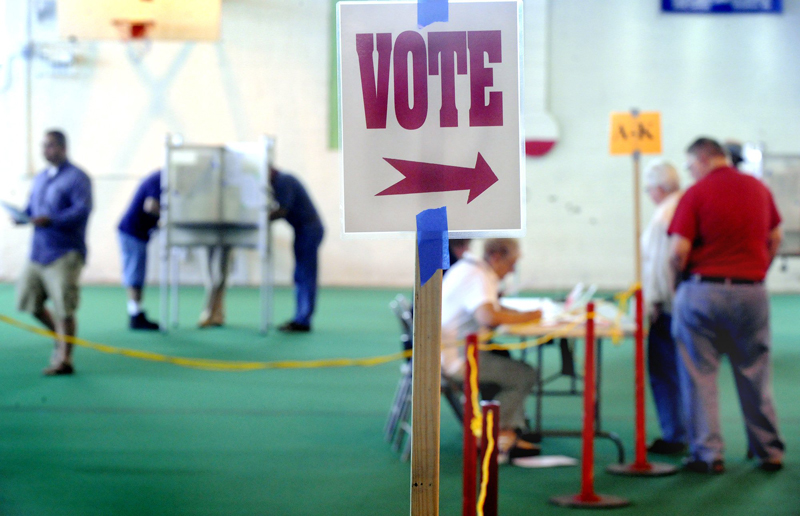The results of the big student voter fraud investigation that was kicked off by Republican Party Chairman Charlie Webster and carried across the goal line by Secretary of State Charlie Summers are in.
And the result? Nothing.
That’s right. The list of 206 students who pay nonresident tuition at Maine schools, yet were still registered to vote here, turned up not one actionable case of voter fraud. It was true that 77 were simultaneously registered in Maine and one other state, but none broke the law by voting in two places in the same election.
This thorough investigation teaches us a very important lesson: In the United States of America, it is still legal to move, even if you are a young person. While our state universities may set high residency standards so they can charge some students high out-of-state tuition, we still consider those students to be residents when it comes time to vote (or pay taxes) if they meet a different standard. If the universities used the standard used for voter registration to determine residency, there would be no students who pay out-of-state tuition.
Undeterred, Summers does not call these student voters law-abiding young people who want to participate in the political process. Instead, he said the investigation revealed the potential for fraud, the same way the billions and billions of those served at McDonalds are potential Hamburglers.
As for the five students who voted in two different states in the same year — but not in the same election — Summers said “Technically, it’s not a violation of the law. I’m not sure exactly how patriotic it is — when people are moving from one state to the next state and one state to the next state, like that.”
At the end of his statement, Summers opined that “Maine’s election system is long overdue for a comprehensive examination of our methodologies and ways in which we conduct our elections,” and we couldn’t agree more.
Before tearing apart our state’s voting practices and traditions, like the Republican-controlled Legislature did this year with the elimination of Election Day voter registration, we should do a comprehensive study of how votes are cast and determine if there are problems that need fixing.
That would call for more than cracking down on college students trying to exercise their constitutional rights just because they are perceived to favor Democratic candidates on Election Day. It should also look at absentee ballots that are used by both parties, but most effectively by Republicans, as get-out-the-vote tools. The number of absentee ballots has grown as a percentage of votes cast from 11 percent in 2000 to 32 percent in 2008, presenting far greater opportunity for fraud than a few hundred out-of-state student voters.
Summers did find one case of a non-citizen who appears to have voted in Portland in 2002. That is a crime for which he should be prosecuted if he hadn’t already been deported, but hardly enough evidence to justify an overhaul of the electoral system.
It looks like Summers is releasing his findings in an attempt to influence the people’s veto campaign to preserve same-day registration, which will be before the voters on Election Day, Nov. 8.
Opponents of the people’s veto, like Webster, want voters to believe that the state’s election system is in shambles, subject to fraud and in need of reform.
That’s Webster’s right as a partisan leader, but we expect more from Summers, who is expected to oversee elections that are fair to everyone.
If Summers wants to use the results of this investigation to justify a deeper look into Maine’s election practices, that would be one thing. But let’s not jump to cure what ails us before we get the diagnosis.
There is nothing in Summers’ findings that proves Maine has a voter fraud problem and he should stop acting as if there were.
Send questions/comments to the editors.



Success. Please wait for the page to reload. If the page does not reload within 5 seconds, please refresh the page.
Enter your email and password to access comments.
Hi, to comment on stories you must . This profile is in addition to your subscription and website login.
Already have a commenting profile? .
Invalid username/password.
Please check your email to confirm and complete your registration.
Only subscribers are eligible to post comments. Please subscribe or login first for digital access. Here’s why.
Use the form below to reset your password. When you've submitted your account email, we will send an email with a reset code.